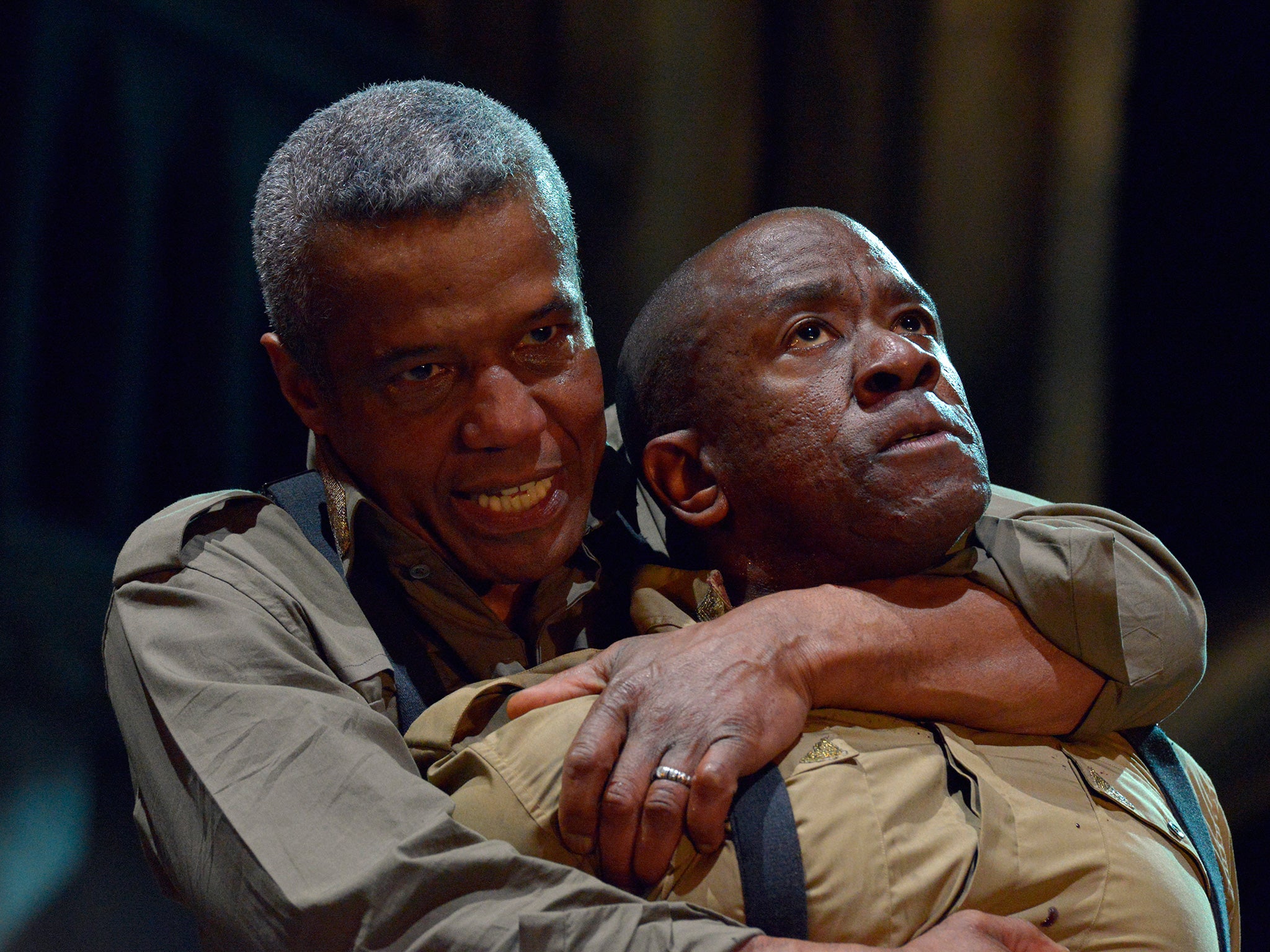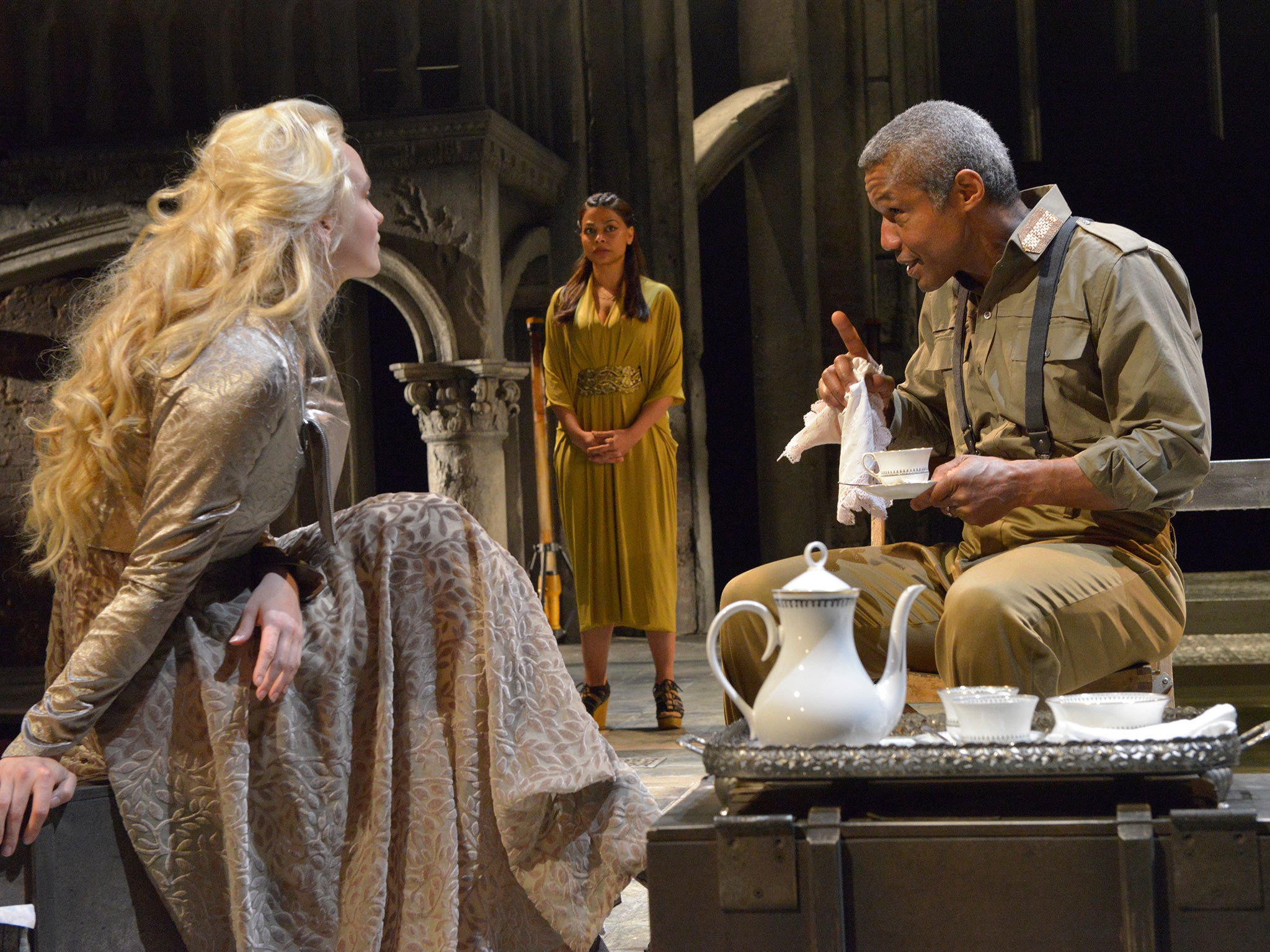Othello, RSC, Stratford-upon-Avon, review: Racism still simmers in black Iago production
The interpretation raises fascinating questions and grips throughout

Your support helps us to tell the story
From reproductive rights to climate change to Big Tech, The Independent is on the ground when the story is developing. Whether it's investigating the financials of Elon Musk's pro-Trump PAC or producing our latest documentary, 'The A Word', which shines a light on the American women fighting for reproductive rights, we know how important it is to parse out the facts from the messaging.
At such a critical moment in US history, we need reporters on the ground. Your donation allows us to keep sending journalists to speak to both sides of the story.
The Independent is trusted by Americans across the entire political spectrum. And unlike many other quality news outlets, we choose not to lock Americans out of our reporting and analysis with paywalls. We believe quality journalism should be available to everyone, paid for by those who can afford it.
Your support makes all the difference.The days when it was thought acceptable for a white actor to black up as Othello are well behind us. But Lucian Msamati makes theatrical history now in being the first black actor ever to play Iago at the RSC.
Earlier instances of such casting are a rarity. In 1997, Jude Kelly directed a “photonegative” production in Washington DC that allowed Patrick Stewart to portray Othello in a company that, with Ron Canada as Iago, was otherwise African-American. Charles Marowitz deconstructed the tragedy in An Othello (1972), creating a black Iago who despised the hero for playing the white man's game.
The singularity of Iqbal Khan's compelling new version is that the tragic protagonist and his nemesis are the same race in a contemporary, culturally diverse world where the army Othello commands is multi-racial but where racism still simmers below the surface. When Roderigo, in the opening episode (set in a gondola), refers to the absent hero as “the thick-lips”, we see Iago freeze and then decide to make light of it, burbling parodic raspberries through his own lips and cuffing Roderigo with a feigned jokiness.
Later, the strikingly staged scene of celebratory drinking and beat-boxing in Cyprus turns ugly when a rap contest leads to blows and to the exposure of some very unfortunate prejudices in Jacob Fortune-Lloyd's Cassio. The fact that Othello has promoted this spuriously liberal white man over him adds a new strand of bitterness to the villain's vengeful hatred.

Msamati's excellent Iago is a stocky, tactically highly engaging figure who develops a cheeky rapport with the audience. His wounded racial pride can be heard, though, in the Zimbabwean folk song he sings during the Cypriot high-jinks and he evidently feels disdain for Othello's assimilationist approach.
This interpretation makes it harder, however, for the actor to convey the inexplicable, terrifying nihilism of Iago's destructive drive, just as a sense of the insecurity that stems from the hero's conspicuous outsider-status in the play as written is somewhat diffused here by the multi-cultural circumstances.
In his very fine performance, Hugh Quarshie starts off as a distinguished, greying, statesmanlike Othello, a man of great charm capable of showing wry amusement at the age difference between himself and Joanna Vanderman's attractively mettlesome Desdemona.

But there don't seem to be enough psychological uncertainties here for Iago to prey upon. Accordingly, instead of gradually succumbing to the lies and insinuations, he appears to flip into violent madness. At the line,“Villain, be sure thou prove my love a whore”, this Othello starts to inflict Abu-Ghraib-style torture methods on his nemesis, whom he nearly asphyxiates with a plastic bag.
Quarshie makes you believe in the intensity of the hero's love for Desdemona but the stakes feel lower because you never quite feel that, in this easier-going world, the general has invested his whole sense of himself in their brave, risky union.
The production, with a palatial set designed and lit by Ciaran Bagnall, raises fascinating questions and grips throughout in what is a significant milestone for the RSC.
To 28 August; 0844 800 1110
Join our commenting forum
Join thought-provoking conversations, follow other Independent readers and see their replies
Comments